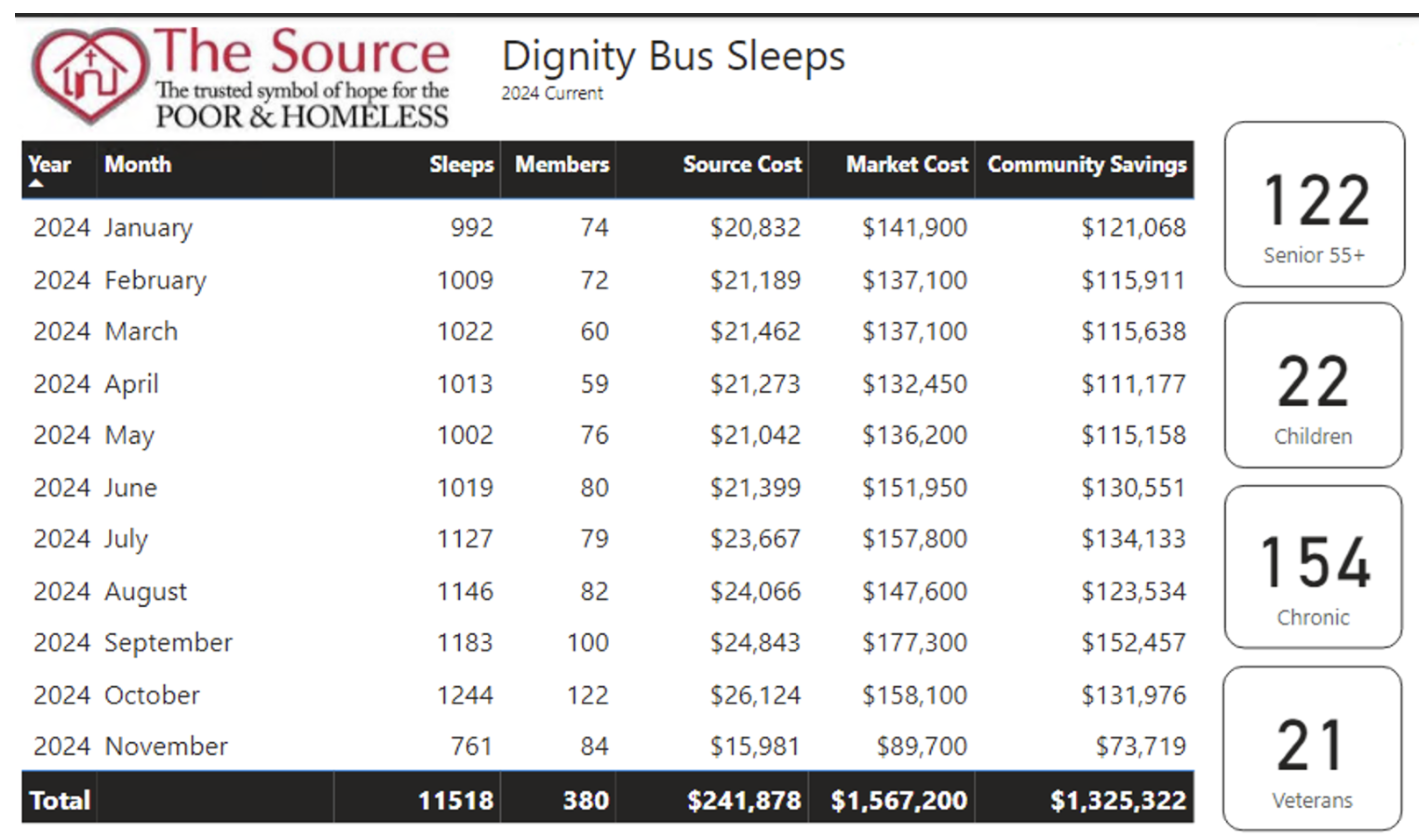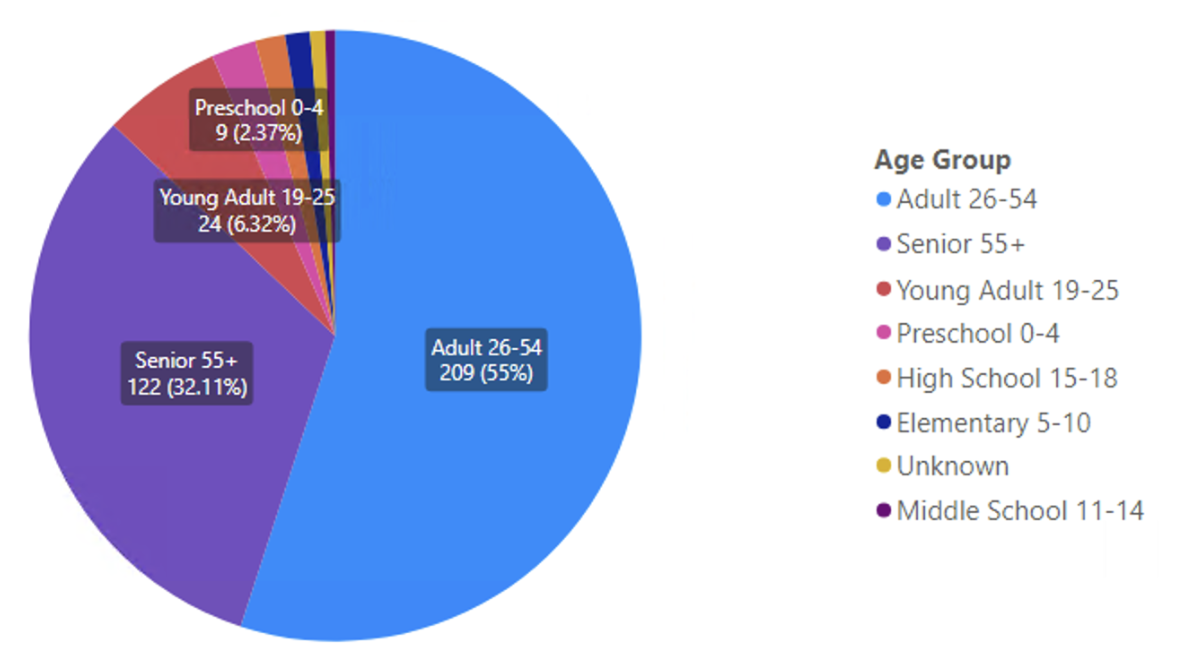DIGNITY BUS: THE VALUE OF SLEEP
BY: DALE CHESSER | Director of Information Technology
The Source’s Dignity Bus is a beacon of hope and efficiency in Indian River County. By addressing the pressing need for safe, temporary sleeping accommodations, the program is improving our members’ lives while saving the community $1,325,322 year to date. This remarkable cost-saving comes from providing over 11,518 nights of lodging at a fraction of the cost compared to alternatives such as hotel rooms.
Beyond financial savings, the program tackles a critical issue often overlooked: the profound connection between sleep and health, particularly for people experiencing homelessness (PEH).

The Broader Financial and Social Impact
The financial implications of inadequate sleep among PEH are significant. A recent study highlighted that 59% of PEH reported getting less than 7 hours of sleep per night, compared to 35% of the general population. Chronic sleep deprivation among PEH has been linked to increased rates of physical and mental health issues, including:
2.93 times higher odds of poor mental health for individuals experiencing unintentional daytime sleep.
A 5.40 times higher likelihood of poor physical health for those experiencing 14-30 days of inadequate sleep per month.
These health challenges translate directly into higher public costs, including increased use of emergency healthcare services, law enforcement interventions, and social support systems. By addressing the root causes of sleep inadequacy, The Dignity Bus reduces the long-term strain on these systems.

Why Sleep Matters
Research underscores the critical role of sleep in breaking the cycle of homelessness. Poor sleep conditions, such as sleeping unsheltered, expose individuals to risks like victimization, exposure to extreme weather, and health deterioration. The study found that unsheltered individuals are twice as likely to report inadequate sleep (30.7%) compared to their sheltered counterparts (15.3%). This disparity underscores the importance of programs like the Dignity Bus, which offer not just beds but safe, stable environments for restorative sleep.
Restful sleep improves physical health, reduces stress, and enhances mental clarity—all crucial for individuals striving to overcome homelessness. For the 380 individuals served by the Dignity Bus this year, including 122 seniors (55+) and 22 children, a good night’s sleep represents more than rest; it’s a stepping stone toward stability and self-reliance.
Maximizing Community Resources
The Dignity Bus has cost the community of $241,878 in 2024, compared to a potential market cost of over $1.5 million for equivalent lodging in hotels or similar. These savings—approximately $6 saved for every $1 spent—are reinvested into the community, alleviating the burden on taxpayers and enabling other critical services. Moreover, by reducing the prevalence of sleep-related health issues, the program decreases the indirect costs associated with homelessness.
Citations:
https://www.sciencedirect.com/science/article/pii/S2352721823002395





